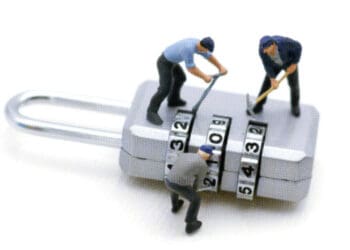Nestled in the fault lines between India and China, two of the world’s fastest-growing economies, lies Nepal. Known for its stunning precipices and welcoming people, Nepal suffered a devastating earthquake in April. With the death toll reaching above 8,000, this tragedy left thousands without shelter and basic necessities, surrounded by crumbling infrastructure and limited resources. Among these earthquake victims were hundreds of travelers who struggled to regain contact with their loved ones.
With the earthquakes in Nepal serving as a stark reminder of the natural disaster risks that accompany business travelers, it is time for employers to reevaluate their Duty of Care responsibilities and what they should be doing to keep their travelers safe.
While some risks are inevitable, the right kind of planning can keep a bad situation from getting worse. For example, after the earthquakes in Nepal, building infrastructure flaws contributed to unsafe conditions, while poor resource planning led to unusable charitable supplies and rescue vehicles and helicopters immobilized in transit. While these macro issues will take intergovernmental cooperation to address, work still remains for employers, who must do more to ensure employee safety in the face of emergency circumstances.
When employers begin their risk management preparations, the stakes are high: employers are obligated to ensure employee safety, which is an enormous task. However, by taking a proactive—not reactive—approach and addressing risks before they appear, employers can gain confidence in their security measures. This can reduce the dangers their employees are exposed to and can safeguard both the employee and the company in the process. The time to begin formulating this proactive plan of action is now, before companies settle back into old habits and rusty safety guidelines.
While individual organizations will have different concerns during a natural disaster, here are some general guidelines that organizations should address in their travel risk management plans:
Be Aware of Risk.
Travel risks are not static; they frequently change depending on season, natural events or political instability. In June, for example, the U.S. State Department issued a travel warning regarding hurricane and typhoon season in the Atlantic basin. Before employees are dispatched to their travel locations, employers should review the State Department’s alerts and warnings tally, which keeps a running tab on risks throughout the world.
Train Employees on Emergency Protocol Procedures.
As we discussed earlier, the best preparation for a crisis is a comprehensive, proactive plan. But this plan doesn’t rest on employers’ shoulders alone. By engaging employees in risk management planning, employers are proactively ensuring their employees are cognizant of the dangers surrounding them and of the precautions they should take when disaster strikes.
One of the simplest, most effective emergency procedures employers can teach their traveling employees is the “near/far” protocol:
Near
When a natural disaster strikes, travelers should perform an immediate, 360° intake of their surroundings and situation.
Are you injured? If so, is it safe to leave your current surroundings? Is your location secure? Do you have access to immediate necessities, like food, water and medication? Remember, when a disaster happens, travel routes are often the first disruption to occur, and public modes transportation will lack security and safety.
When travelers find themselves in a disaster situation, the first priority should always be ensuring their immediate safety and health.
Far
After taking stock of immediate surroundings, travelers should focus on the “far” concerns that await. Where is the closest embassy or consulate?
Assess the lines of communication – is the power out, and are phone lines down? If there is still access to phones lines or an Internet connection, can travelers reach their employers to update them on their safety and location? One of a traveler’s first calls should be to their travel risk management provider, who can offer on-the-ground help and resources.
If on business, is there a way travelers’ employers will attempt to contact them? If communication is impossible, is there a trusted local associate who can provide assistance? Look ahead to the next 24 hours to determine the most responsible safety and communication steps to take.
Before an employee leaves for a business trip, he or she should be briefed on the above procedures and should have the tools and information needed to answer key near/far questions that will arise at the time of an emergency.
Understand the Capability on the Ground.
When a crisis erupts, be prepared to identify the best on-the-ground resources. In the aftermath of a disaster—natural or otherwise—time is of the essence. If safety research is performed before an employee travels, employers will be prepared to act. What resources does your travel risk management program offer? Are there NGOs or other organizations your company can contact? Does the company have any local contacts on the ground who are in touch with the business travelers?
As shown in Nepal, the confusion surrounding the aftermath of a disaster makes communication and safety difficult to organize. If a company understands the resources they can activate on the ground, they will be able to track and pull employees to safety before there is additional confusion.
For example, in the Nepal crisis, the earthquake itself was only the beginning: the aftershocks that rattled the country compounded unsafe conditions. Planning ahead gives employers the ability to immediately place their employees in a safer environment.
Crowdsource Intelligence – and Know your Technology.
Even the best-laid plans sometimes go awry during a catastrophic event. If a company is unable to locate an employee, then it’s time to crowdsource your intelligence. While traditional methods and avenues are effective, consumer technology also offers an immediate tracking system employers should take advantage of. Facebook, for example, activated the “Safety Check” feature in response to Nepal’s earthquake: users in the earthquake zone were prompted by Facebook to mark themselves as “safe,” a reassurance that was then sent to the individual’s network. In a time of crisis, it is best to account for all possibilities by keeping up-to-date on the latest technology features. Platforms like Twitter and open source mapping proved invaluable in the Nepal aftermath, and informing risk management coordinators and employees of these tools could remove employees from danger and lower risk.
With safeguards and procedures in place, risk management training and preparation can save precious time when a disaster hits. By reviewing and implementing the procedures above, employers can dispatch their employees safely around the globe, confident that they are meeting their Duty of Care objectives and responsibilities.



 Jim Hutton is Chief Security Officer for
Jim Hutton is Chief Security Officer for 





